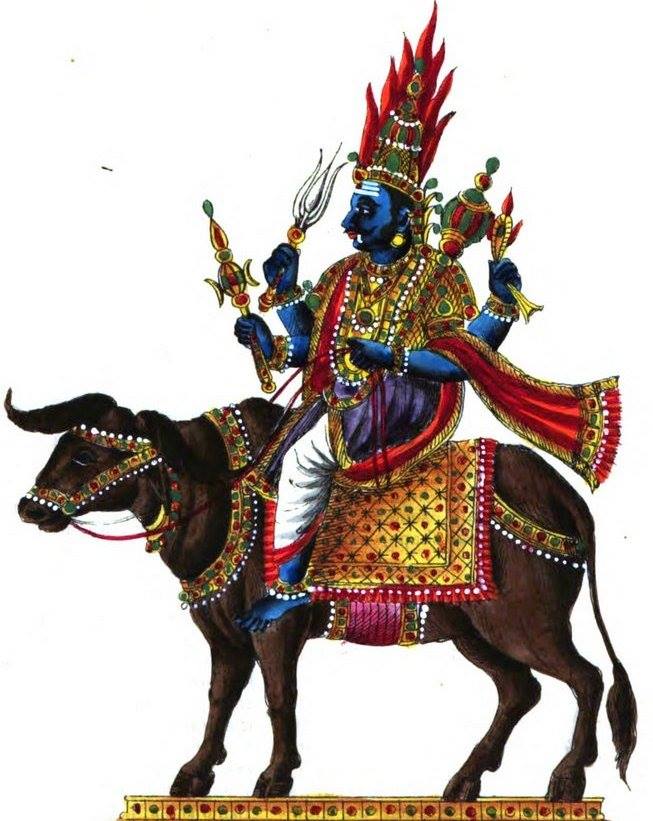
Yama is a significant deity in Hinduism, Buddhism, and some other Indian religions. He is often referred to as the god of death and the lord of justice. Yama is responsible for presiding over the realm of the dead and ensuring the orderly passage of souls into the afterlife. Here are some key aspects of Yama as a god:
- God of Death: Yama is primarily associated with the concept of death. He is responsible for determining the destiny of souls after death, based on their deeds and actions during their earthly life. Yama is often depicted as a stern and just figure who impartially enforces the laws of karma.
- Lord of Justice: Yama is considered the ultimate judge who assesses the moral and ethical conduct of individuals. He determines the appropriate afterlife destination for each soul, whether it is heaven (Swarga) or hell (Naraka), based on their deeds and dharma (duty).
- Dharma and Yama: Yama is closely associated with the concept of dharma, which is the righteous path and moral duty in Hinduism. He upholds dharma by ensuring that individuals are rewarded or punished in accordance with their actions.
- Physical Appearance: Yama is often depicted with green or black skin and red eyes. He is shown riding a buffalo and wielding a mace or staff. In some depictions, Yama is accompanied by his twin sister, Yami, who is the personification of the Yamuna River.
- Yama in Mythology: Yama appears in various Hindu scriptures and epics, including the Mahabharata and the Puranas. In these texts, he is often portrayed in the context of discussions on life, death, and the afterlife.
- Worship and Rituals: Yama is not typically worshiped as a primary deity in the same way as gods like Vishnu or Shiva, but there are specific rituals and observances dedicated to Yama in some regions of India. For example, in South India, there is a festival called “Yama Dwitiya” where people offer prayers to Yama for the well-being of their family members.
- Yama in Buddhism: In Buddhism, Yama is also a significant figure and is often portrayed as a wrathful deity who guards the gates of hell. He is responsible for passing judgment on souls and is invoked in various Buddhist rituals.
Yama’s role as the god of death underscores the importance of ethics, morality, and the consequences of one’s actions in Hindu and Buddhist belief systems. His presence serves as a reminder of the impermanence of life and the need for living a righteous and virtuous existence.
